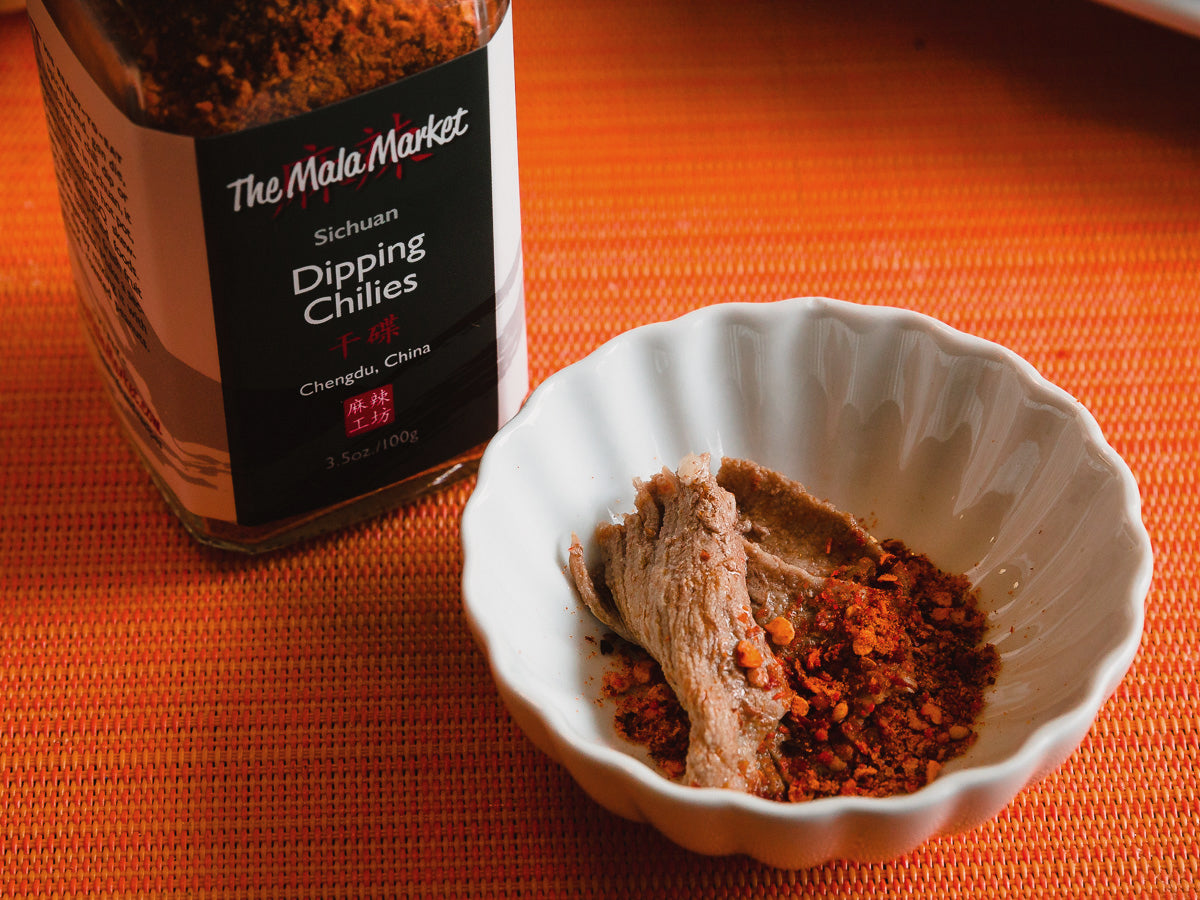Your New Favorite Condiment
Greetings, Friends of The Mala Market
Woohoo! It's only taken TWO FULL YEARS, but now everyone's favorite Sichuan chili condiment is back in stock and RIGHT! Some of you may remember that we introduced a version of Sichuan Dipping Chilies a few years ago that many of you went gaga over it, but then the Chengdu maker inexplicably changed the formulation for the worse. It took us about a year to find a worthy replacement, and then we accidentally and inexplicably imported the wrong formulation a second time! But here we are finally, with the good stuff! We're also flush with recipes this week, and super excited to have Kathy's detailed instructions for Sichuan-style master stock. Make it once, and you're set for months or years, with meats and vegetables coming in and out to create an ever richer and more complex braising liquid. Braised meats are most often served as a cold-dish starter. You'll want dipping chilies with those dishes, and we also have a couple other recipes that use dipping chilies as both condiment and recipe ingredient. Enjoy!
|

